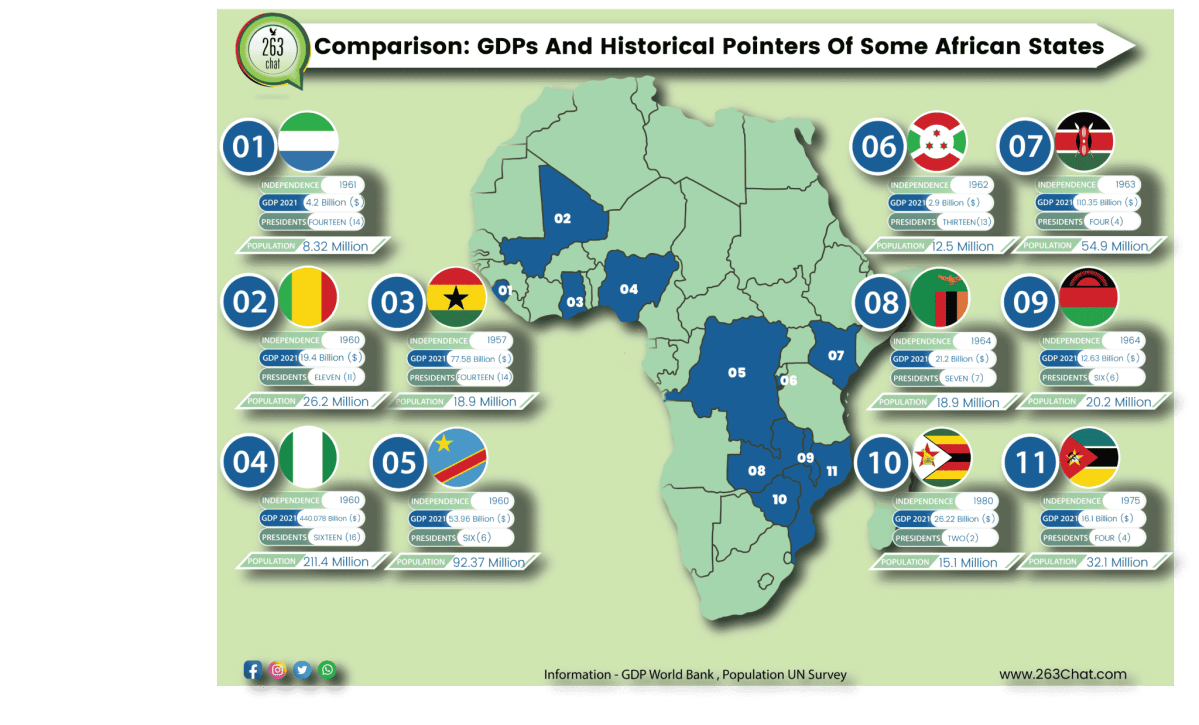
By Samson Fombe
One of the best ways to tell a story of transformation, development and change in parts of Africa is to showcase changes over a period of time.
The political independence of each previously colonized African country sets itself as the beginning of the journey towards socio economic transformation of each country.
The surveys show Zimbabwe with the least population and number of presidents since its independence while it has the least Gross Domestic Product (GDP) despite having odds in its favor.

Zimbabwe finds itself amongst the smallest of the selected countries in physical size, population growth, GDP and the number of presidents since gaining their independence.
Economic growth in former colonies has been a topic of argument over the years.
According to the information on the diagram above, Zimbabwe is the last country that acquired independence.
However its economic progress is behind those of others that became independent earlier, such as Nigeria.
Continual leadership changes has also been linked with economic growth in African countries. At the same time, continual leadership changes can also be linked to countries that are constantly ridden with civil wars.
In the case of Zimbabwe, it is very different as the country has had 3 presidents and an ever unstable economy.
Zimbabwe’s GDP is amongst those of countries that have had civil wars and military governments.
Economist Mr. Vince Musewe attributed Zimbabwe’s lack of meaningful economic growth since independence to the disruptive land reform program of 2000 and the brain drain which has occurred in the last decade.
“Zimbabwe is the only country in all of Africa that theoretically and practically took land from white people and in turn led to the loss of major producers and funders of the economy, this land reform program’s effects were further intensified by the brain drain that followed since 2000 up to date,” commented Mr. Musewe.








